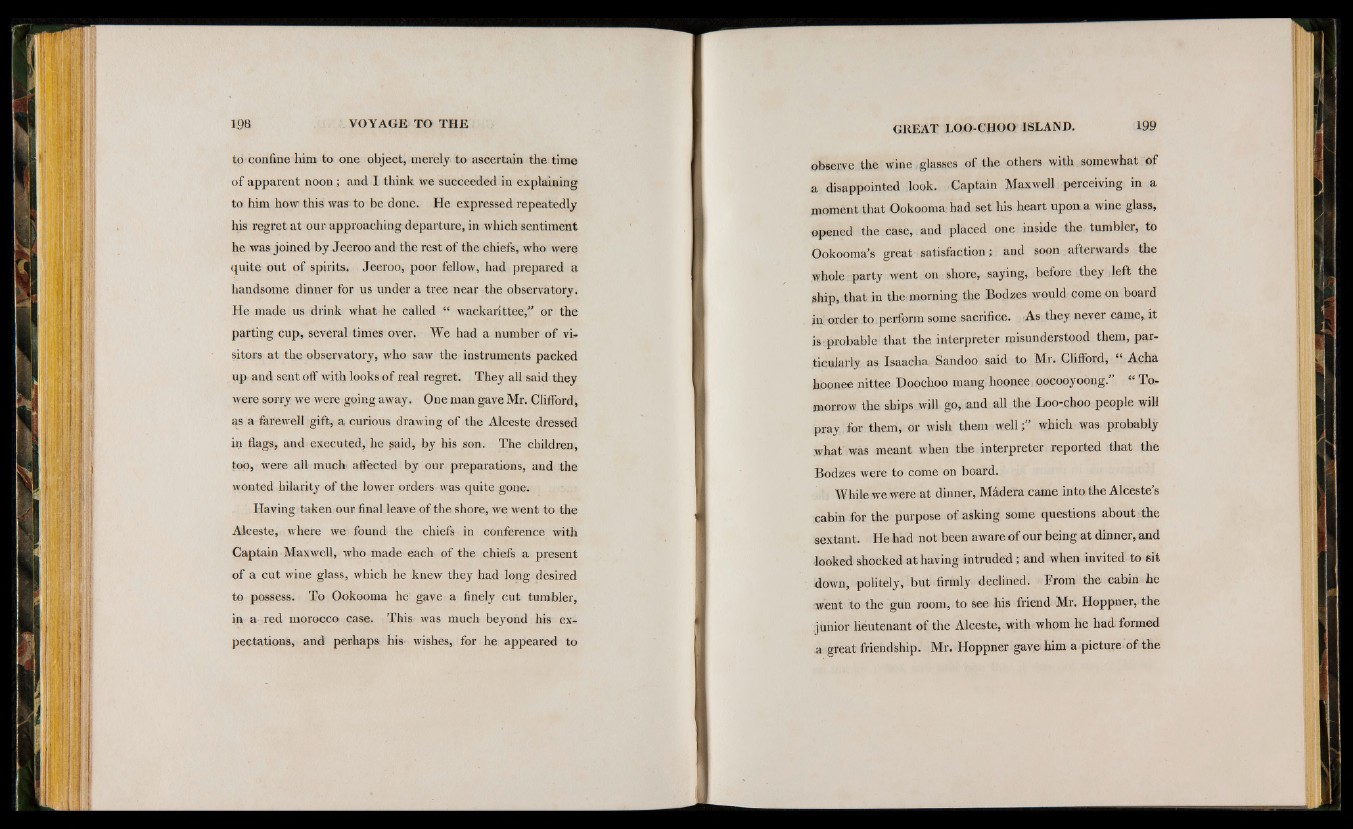
to confine him to one object, merely to ascertain the time
of apparent no o n ; and I think we succeeded in explaining
to him how this was to be done. He expressed repeatedly
his regret at our approaching departure, in which sentiment
he was joined by Jeeroo and the rest of the chiefs, who were
quite out of spirits. Jeeroo, poor fellow, had prepared a
handsome dinner for us under a tree near the observatory.
He made us drink what he called “ wackarittee," or the
parting cup, several times over. We had a number of visitors
a t the observatory, who saw the instruments packed
up and sent off with looks of real regret. They all said they
were sorry we were going away. One man gave Mr. Clifford,
as a farewell gift, a curious drawing of the Alceste dressed
in flags, and executed, he said, by his son. The children,
too, were all much affected by our preparations, and the
wonted hilarity of the lower orders was quite gone.
Having taken our final leave of the shore, we went to the
Alceste, where we found the chiefs in conference with
Captain Maxwell, who made each of the chiefs a present
of a cut wine glass, which he knew they had long desired
to possess. To Ookooma he gave a finely cut tumbler,
in a red morocco case. This was much beyond his expectations,
and perhaps his- wishes, for he appeared to
observe the wine glasses of the others with somewhat of
a disappointed look. Captain Maxwell perceiving in a
moment that Ookooma had set his heart upon a wine glass,
opened the case, and placed one inside the tumbler, to
Ookooma's great satisfaction; and soon afterwards the
whole party went on shore, saying, before they left the
ship, that in the morning the Bodzes would come on board
in order to.perform some sacrifice. As they never came, it
is probable that the interpreter misunderstood them, particularly
as Isaacha Sandoo said to Mr. Clifford, “ Acha
hoonee nittee Doochoo mang hoonee oocooyoong.” “ Tomorrow
the ships will go,, and all the Loo-choo people will
pray for them, or wish them w e l lw h i c h was probably
what was meant when the interpreter reported that the
Bodzes were to come on board.
While we were at dinner, MAdera came into, the Alceste’s
cabin for the purpose of asking some questions about the
sextant. He had not been aware of our being a t dinner, and
looked shocked a t having in truded; and when invited to sit
down, politely, but-firmly declined. From the cabin he
went to the gun room, to see his friend Mr. Hoppner, the
junior lieutenant of the Alceste, with whom he had formed
a great friendship. Mr. Hoppner gave him a picture of the